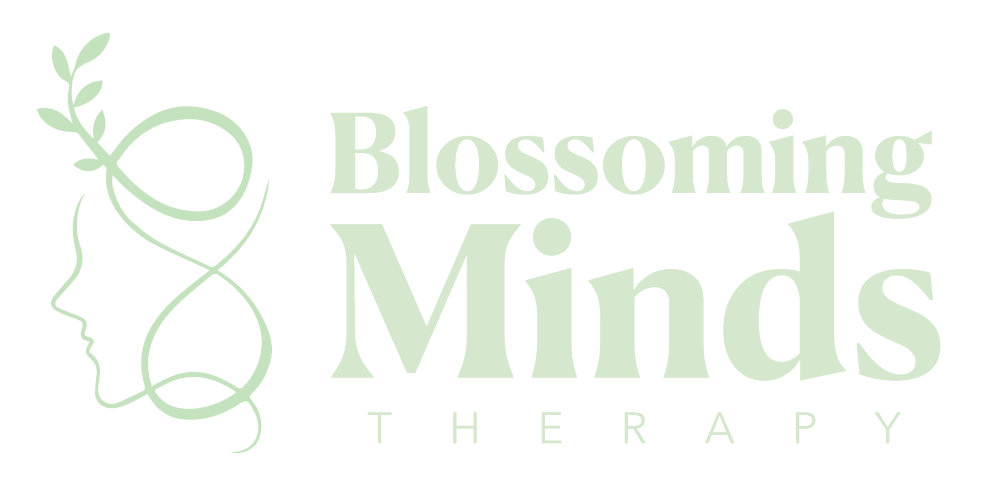NDIS Services

The National Disability Insurance Scheme (NDIS) is an initiative by the government of Australia that provides support to people with disabilities. Its primary goal is to help people improve their quality of life and accomplish their goals. One of the essential aspects of the NDIS is its therapeutic help. It plays a critical role in helping people with disabilities control their symptoms and improve their well-being. Counselling services, when included in a participant's NDIS plan, can contribute to these objectives in several ways:
-
Emotional Support
-
Mental Health Management
-
Improved Self-Esteem
-
Enhanced Communication Skills
-
Stress Reduction
-
Goal Setting and Achievement
-
Family and Caregiver Support
-
Behavioural Interventions
-
Navigating Life Transitions
-
Advocacy and Empowerment
Therapeutic Services at Blossoming Minds Therapy
We at Blossoming Minds Therapy provide NDIS-funded counselling and psychotherapies for children and adults. Our NDIS services can help you address depression and anxiety, boost your confidence, strengthen your relationships, improve social connections, manage emotions and rage, and set objectives to increase your motivation.
Holistic parent sessions for NDIS clients
Parent sessions or sessions with caregivers play a crucial role in the support and development of individuals with disabilities who are participants in the National Disability Insurance Scheme (NDIS) in Australia. These sessions are valuable for several reasons:

Education and Information Sharing:
Parent sessions provide an opportunity for caregivers to receive information and education about their child's disability, its impact, and available support services. This knowledge helps parents better understand their child's needs and how to navigate the disability support system effectively.
Skill Building:
Caregiver sessions often include training on specific skills and strategies to support their child's development, independence, and well-being. These skills may encompass communication techniques, behaviour management, and techniques for enhancing daily living skills.
Empowerment:
Caregiver sessions empower parents and caregivers to actively participate in decision-making processes regarding their child's NDIS plan. It allows them to advocate for their child's needs and preferences, ensuring that the plan is tailored to meet those specific requirements.
Emotional Support:
Caring for a child with a disability can be emotionally challenging at times. Parent sessions provide a supportive space for caregivers to discuss their feelings, concerns, and experiences. This emotional support is essential for maintaining the well-being of parents and ensuring they can provide the best care for their children.
Networking and Peer Support:
Parent sessions often bring together caregivers facing similar challenges. This provides an opportunity for networking and peer support, allowing parents to share experiences, exchange advice, and build a sense of community with others who understand their situation.
Enhancing Communication:
Effective communication between parents, caregivers, and service providers is crucial for the successful implementation of an NDIS plan. Parent sessions can facilitate discussions about goals, progress, and any necessary adjustments to the plan, improving the overall support system for the individual with a disability.
Behaviour Management:
Many individuals with disabilities may exhibit challenging behaviours. Caregiver sessions can teach strategies for behaviour management and help parents and caregivers better understand the underlying causes of these behaviours.
Consistency in Care:
When parents and caregivers are educated and trained in the same strategies and approaches, it promotes consistency in the care and support provided to the individual with a disability. This consistency can contribute to improved outcomes.
Monitoring Progress:
Parent sessions often involve reviewing the progress of the individual with a disability. Caregivers can track their child's development, identify areas of improvement or concern, and work collaboratively with service providers to address these issues.
Holistic Family Well-Being:
NDIS recognizes the importance of the holistic well-being of families and caregivers. By offering support through parent sessions, the NDIS aims to improve the overall quality of life for both the individual with a disability and their family members.
At Blossoming Minds Therapy, we provide these holistic parental sessions that contribute to the overall success of the NDIS plan and the well-being of the entire family.
How does NDIS Funding work for Counselling Services?
The NDIS in Australia provides funding for a wide range of supports and services, including counselling, for eligible individuals with disabilities. Here’s how NDIS funding typically works for counselling:

Access and Eligibility Assessment:
To access NDIS funding, individuals must first go through an eligibility assessment process. If they meet the eligibility criteria, they will be deemed eligible for the NDIS.
Planning Meeting:
Once deemed eligible, the individual will have a planning meeting with an NDIS planner or Local Area Coordinator (LAC). During this meeting, they will discuss their goals, needs, and preferences, including any need for counselling or mental health support.
Developing an NDIS Plan:
Based on the information gathered during the planning meeting, an NDIS plan is developed. This plan outlines the individual's goals, the support and services they require, and the funding allocated to meet those needs. If counselling is deemed necessary, it will be included in the plan.
Funding Categories:
NDIS plans are divided into categories of support, and counselling typically falls under the "Improved Daily Living" category. Within this category, there may be specific funding allocated for "Improved Daily Living - Therapeutic Supports," which includes counselling services. The funding is allocated based on the individual's identified needs and goals.
Choice of Provider:
Once the NDIS plan is approved, the participant can choose a registered NDIS provider who offers counselling services. It's important to choose a provider who has the necessary qualifications and experience in delivering counselling to individuals with disabilities. You can have a 15-minute discovery call with our therapists at Blossoming Minds Therapy and we can provide guidance.
Service Agreements:
The participant and the chosen provider will enter into a service agreement that outlines the terms and conditions of the counselling services, including the frequency, duration, and goals of the sessions.
Payment:
NDIS funding for counselling is typically paid directly to the chosen provider. The provider will submit invoices or claims to the NDIS for payment, based on the services provided and the agreed-upon rate.
Monitoring and Review:
The NDIS plan is reviewed periodically to ensure that it continues to meet the individual's needs and goals. Adjustments can be made to the plan, including changes to the funding allocated for counselling, if necessary.

Schedule your Appointment Today!
At Blossoming Minds Therapy, we believe that every person deserves to grow, regardless of their discrepancies. We are here to guide, help, and empower you. Consult us to make your appointment!
Our Location
Office Hours
Monday to Friday – 9:00AM to 6:00PM
Saturday and Sunday – Closed




